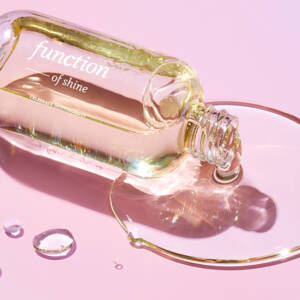Disclaimer: The information provided is not intended as medical advice. For any medical concerns, always contact your doctor.
Using rosemary for hair may seem a bit bizarre at first thought. Shouldn’t this aromatic herb be reserved for delicious breads and elegant cocktail garnishes?
While it’s true that a sprig of fresh rosemary can be a delicious addition to many foods and beverages, it may also be beneficial as a haircare ingredient. Let’s get into the origins of this long beloved herb and explore the potential benefits if you use rosemary oil for hair.
Rosemary’s Story: From the Ground to the Shampoo Bottle
Though rosemary leaves themselves have lots of redeeming qualities, it’s rosemary leaf extract that has come into common use for skin, hair, and healthcare products. There are technical ways of producing rosemary leaf extract that use solvents, carbon absorption, and decolorization — but we’ll give you an abridged version.
Essentially, the process of producing rosemary leaf extract involves drying out the stalks, removing the leaves from the stem, boiling them over water with a carrier oil like grapeseed oil, simmering for a few hours, and straining the resulting oil into it’s complete extracted form.
There’s a difference between the essential oil version of rosemary and rosemary leaf extract. The former is rosemary oil in its purest form. And as we’ve mentioned, the latter is extracted from the leaves and mixed with a carrier oil.
Because rosemary essential oil is very concentrated, it’s generally used more sparingly — just a few drops of rosemary oil in water can create a relaxing aromatherapy. While it can be a great addition to hair treatments, it’s best to take advantage of the power of rosemary essential oil with the help of a small dropper so you don’t add too much.
On the other hand, rosemary leaf extract is a diluted version of rosemary oil. As such, more plentiful amounts of it can serve as an ingredient in skincare and hair products like shampoos, conditioners, and hair serums. Rosemary leaf extract’s ability to easily and safely blend with other ingredients make it a valuable alternative to rosemary essential oil. However, both extracts and oils can be applied in different ways to your hair.
Potential Benefits of Rosemary for Healthy Hair Care
Rosemary leaves have been used as a home remedy for centuries. In folk medicine, the plant has been considered an antibacterial agent for cuts or as an aid for digestion, much like spearmint or peppermint. Meanwhile, rosemary essential oil has been a go-to fragrance in aromatherapy to enhance an overall sense of wellness.
As it turns out, you can also use rosemary leaf extract or oil to treat your tresses. You may have heard about the purported health benefits of rosemary oil for hair growth and for reducing hair loss or thinning hair. But we won’t go there as the scientific jury is still out and more research is needed.
Whether it’s caused by excessive shampooing, using the wrong hair products, genetics, or a combination of these factors and others, many people struggle with an oily scalp. Having a greasy scalp can prevent your hair from looking fierce from root to tip.
Scientific data shows that rosemary oil stimulates the scalp and can also help control greasy hair. Furthermore, reports published on the National Center for Biotechnology Information (NCBI) database show that the antioxidant and antimicrobial properties of rosemary can lead to a more healthy-looking (and healthy-feeling) scalp and mane.
While there are no guarantees that applying rosemary oil or rosemary leaf extract (sometimes shown as “rosmarinus officinalis leaf extract” on the ingredients label) will yield such results, it’s no surprise that this multifaceted herbal extract is so popular in a variety of haircare products.
Pro Tip: Discover top healthy scalp tips for happier-looking tresses and learn the difference between dandruff and dry scalp.
How to Add More Rosemary to Your Haircare Routine
Now that you know about some benefits of rosemary, you might be wondering what’s the best way to use this ingredient. Luckily, there are products and treatments for you to easily add rosemary to your haircare routine and maximize the vitality of your mane.
Cleanse Your Hair With Rosemary
Because rosemary may help keep your natural hair oils in check, consider introducing a shampoo and conditioner set infused with rosemary leaf extract like Function of Beauty’s custom shampoo and conditioner.
This 100% vegan and fully customizable combo can be formulated with naturally derived and synthetic ingredients — like rosemary leaf extract and vitamin E extract — to suit your unique hair needs and help give you beautiful-looking locks.
DIY Rosemary Oil Hair Rinse
Many grocers and natural food markets sell small bottles of rosemary oil that you can mix with other oils to make an at-home hair rinse. Create your own rosemary for hair rinse using these simple ingredients and instructions.
Ingredients
- Rosemary essential oil
- Castor oil
- Carrier oil
Instructions
- Add two tablespoons of castor oil to a jar and place it in hot water.
- Add one tablespoon of a carrier oil, such as olive oil, sweet almond oil, jojoba oil, or coconut oil.
- Keep the mixture in the bowl for 10 minutes to warm it up.
- Once warm, add 10 drops of rosemary oil and stir well.
- Massage mix into scalp for 10 minutes, leave on scalp for a 30-minute treatment, or keep it on overnight. Then, wash with shampoo and conditioner.
Using this treatment once a week or every two weeks can support your overall hair goals and reinvigorate your roots. Plus, it’s a great way to pamper your hair with a woody, herbaceous, and stimulating scent.
Treat Your Tresses With Rosemary for Hair
Rosemary oil has the potential to enrich your hair from the scalp down to the ends of your strands. Doing a regular rosemary oil treatment, using a shampoo and conditioner infused with rosemary leaf extract, or adding a few drops of rosemary oil to your styling products — such as a custom leave-in conditioner — will give you a boost of this herbal favorite to help your hair enjoy its best life. And because rosemary has such a unique and enticing scent, it can also help your hair smell amazing.
Of course, there are plenty of other ingredients like linseed extract, acai oil, aloe vera, and shea butter that have lots to offer you and your hair. But which ones are the best for you?
Take our hair quiz to create a profile unique to your hair type and choose your desired hair goals. Whether you want color protection, hydration, thermal protection, or volume, there are 18 different hair goals designed around your hair type, structure, and moisture level, so you can find the ideal mix for your mane.





